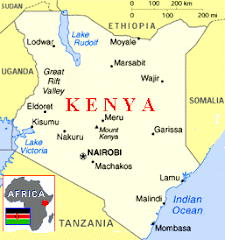The new President has surfed into office on a tidal wave of good will. Will he use it effectively to promote human dignity?
 Barack Hussein Obama has now been sworn in as the 44th President of the United States of America. His accession to that office shows that America has finally come to terms with what has often been called its "original sin", racism.
Barack Hussein Obama has now been sworn in as the 44th President of the United States of America. His accession to that office shows that America has finally come to terms with what has often been called its "original sin", racism.
He moves into the White House with a war chest of good will. The sight of two million enthusiastic admirers from all over America to attend the inauguration spoke for itself. More than 80 percent of Americans approve of how he has handled the transition from the Bush administration. A BBC poll also shows widespread and growing optimism about his presidency around the world. In 17 countries polled, 67 percent of people think it will lead to improved relations between the US and the rest of the world. Even in the world’s largest Muslim country, the figure is 64 percent.
This is an historic opportunity. As the leader of the world’s most powerful nation, President Obama can set the agenda for human dignity in many areas, domestically and internationally. But will he?
While there is much to recommend Mr Obama, the editors of MercatorNet have some definite points of concern and disagreement with him, mostly focussed on the issues of life and human dignity. As he takes office and begins to exercise his executive powers, we pledge to watch him on these key issues. (Please add comments about other issues which you think should be on our agenda.)
* * * * *
The possibility of a global financial meltdown didn’t emerge until late in the election campaign – but it has arrived. Saving jobs and keeping Americans in work has become Obama’s top priority. The economy lost 760,000 jobs last year and unemployment could rise towards 9 percent by the end of the year. Without work, people lose their sense of self-worth and dignity.
No issue is more inflammatory for Americans than abortion. Other countries follow the US lead on abortions rights, so what the new President decides matters for the whole world. Obama has already declared that he will back abortion rights. Back in 2007, he promised Planned Parenthood that he would sign the controversial Freedom of Choice Act (FOCA) as soon as he was elected. This will effectively guarantee a right to abortion up to birth and would override any state legislation to the contrary. He should face up to the fact that African Americans are a specific target of the abortion industry.
Obama has promised to lift restrictions on federal funding for human embryonic stem cell research imposed by President Bush. This matters, even though the human beings which will be sacrificed in scientific laboratories are only visible under the microscope. Without restrictions of some kind, scientists will also begin creating embryonic clones and even chimera and cross-species embryos with Federal funding. (This is already permitted in the UK.) In any case, he ought to know that despite millions of dollars and years of effort, scientists have made no progress towards cures with destructive embryo research. But significant progress has been made with other, ethically acceptable, stem cells. Ethical science, in the end, is always the best solution.
Obama says that he will provide affordable, accessible health care for all Americans. This will be a huge battle, especially in the current economic crisis. About 47 million of them are uninsured. People without insurance receive less preventive care, are diagnosed at more advanced disease stages, receive less therapeutic care and have higher mortality rates than people with insurance.
The United States is an ageing society. Providing for the elderly is one of the greatest challenges faced by the new Administration. At the moment the long-term unfunded cost of programs for the elderly has ballooned out to US$43 trillion (not billion, trillion). Obama has promised to be honest about the solvency of social security programs. If he’s not, American seniors will suffer. Fixing social security must be the hardest job in American politics – and one of the most serious.
Because of his Kenyan heritage, Obama has a special link with Africa, the poorest, most violent, most underdeveloped, least healthy continent. But with its youthful population and vibrant people, Africa could be a global asset. Helping sub-Saharan Africa to develop ought to be one of Obama’s top foreign policy objectives. He mustn’t squander this historic opportunity. One way of squandering it would be to let the population control movement (aka reproductive health) dictate American policy. Since the movement is racist, it would not be a good look for a black president.
The war in Gaza is a reminder that American foreign policy has failed to make progress in the conflict between Israel and Palestine. Life in Gaza is the pits: a densely-populated city with a high birthrate, high unemployment, and high poverty levels. After Israel’s invasion, it looks at though an earthquake had hit. Creative diplomacy is needed to break through the grievances on both sides so that both Israelis and Palestinians can live in peace and security. Instead of cynically tossing this in the too-hard basket, Obama should apply his own advice: Yes, we can.
By: Michael Cook




No comments:
Post a Comment